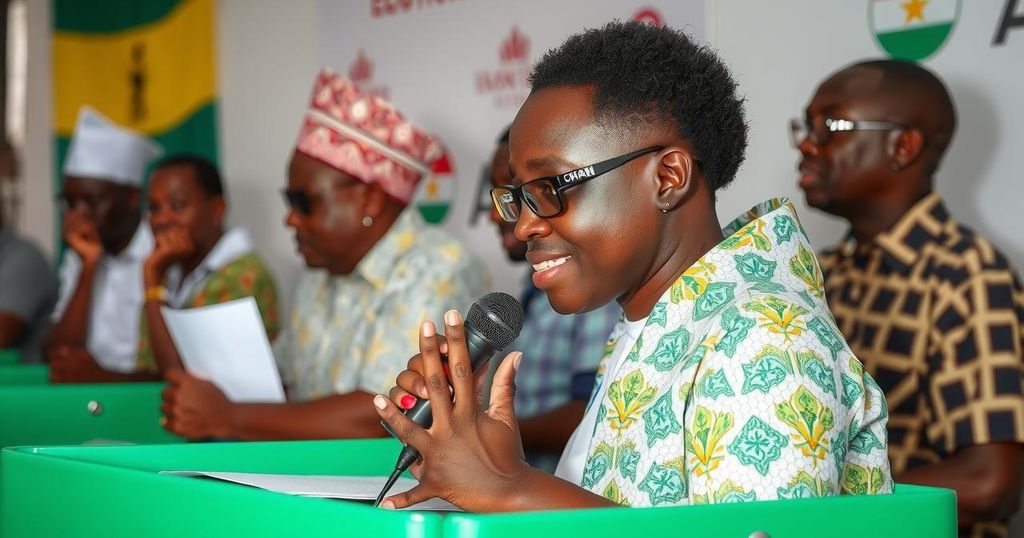Ghana’s Election: A Choice Between Leadership and Economic Recovery

Ghana’s upcoming election features a choice between former President John Dramani Mahama and incumbent Vice President Mahamudu Bawumia amid a severe economic crisis. Voter sentiments are heavily shaped by inflation, unemployment, and protests related to illegal mining. The election marks a notable moment, especially with a newly energized youth electorate ready to influence the political landscape. Expectation for high voter turnout could denote a significant shift in governance depending on the outcome.
On Saturday, Ghanaians face a pivotal election, tasked with deciding between Mahamudu Bawumia, the incumbent vice president, and John Dramani Mahama, a former president seeking a return to power. The election is largely influenced by a dire economic situation characterized by surging inflation, increasing unemployment, and widespread poverty, making it a critical juncture for the country’s future. It marks a rare moment in Ghanaian politics as both candidates hail from the historically marginalized north, aiming to connect with the youth who constitute a substantial component of the electorate.
The ongoing economic crisis in Ghana, described by experts as the worst in a generation, has led to significant disenchantment among the populace, particularly the youth. Prior borrowing practices have exacerbated inflation and poverty levels, compelling the government to implement austerity measures while grappling with food insecurity and unemployment. Growing protests over environmental issues caused by illegal mining (“galamsey”) demonstrate a restive youth eager for change, with many registering to vote for the first time amid frustrations over governmental inadequacies.
Ghana, known for its relative political stability in a region plagued by conflict, has historically been a focal point for international engagement. The election promises to be highly competitive, with analysts suggesting a potential advantage for Mr. Mahama, despite concerns regarding Mr. Bawumia’s association with the current administration’s failings. With high voter turnout expected, results are anticipated swiftly—potentially by midnight on Election Day, although official confirmation may take several days.
Ultimately, the election also serves as a measure of the electorate’s sentiment towards the core issues affecting their lives, with the future economic direction of Ghana hanging in the balance. As more than 18 million individuals prepare to cast their votes, the outcome remains uncertain, yet vital to the nation’s prospects.
Ghana is currently navigating one of the most significant economic crises in its history, prompting widespread public anxiety and unrest. Factors contributing to this predicament include rampant inflation, escalating unemployment, and a substantial increase in national debt. The ongoing protests against environmental degradation caused by illegal mining further complicate the political landscape as young voters express their frustrations and hopes for change. The socio-political context of this election encapsulates a historic moment, as the candidates share a common heritage, showcasing a new dynamic in Ghana’s political arena following decades of a two-party system.
In conclusion, Ghana’s impending presidential election indicates a critical moment for its democracy, as voters grapple with severe economic crises and environmental concerns. The contest between Mr. Mahama and Mr. Bawumia not only reflects their contrasting visions for the country’s future but also highlights the younger generation’s growing influence in shaping Ghana’s political trajectory. As anticipation builds for the election results, the implications of the voters’ decision will resonate deeply within the socio-economic fabric of the nation.
Original Source: www.nytimes.com






